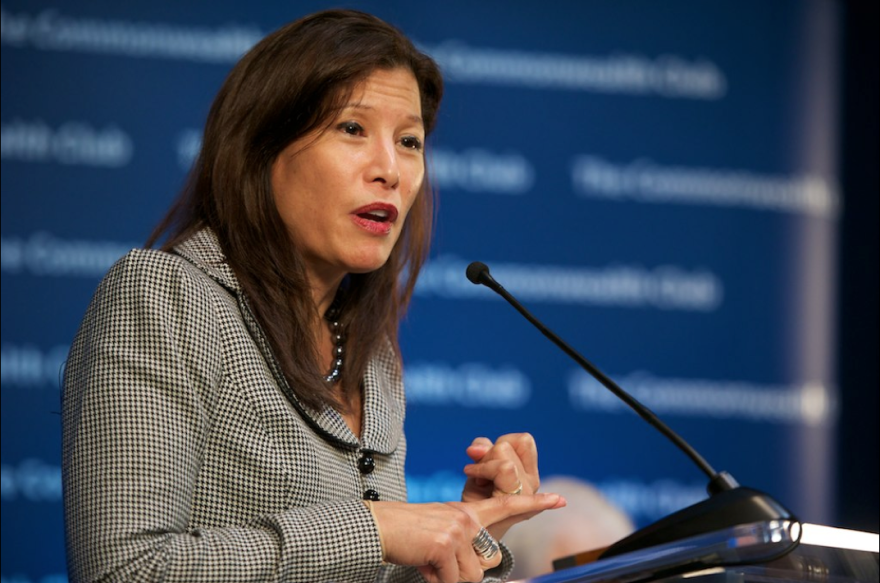This story is free to read because readers choose to support LAist. If you find value in independent local reporting, make a donation to power our newsroom today.
This archival content was originally written for and published on KPCC.org. Keep in mind that links and images may no longer work — and references may be outdated.
Lack of interpreters among the barriers to justice in California

When talking about language diversity in California, most think Spanish. But Californians speak over 200 languages — and courts need people who can translate into all of them.
A large shortage of translators was amongst the many issues discussed by a language-access working group that met in Los Angeles Tuesday. The group, spurred by California's Chief Justice Tani Cantil-Sakauye, seeks to improve court access for non-English speakers. California has about 7 million people who speak English "less than very well."
Riverside County Deputy CEO Angie Murphy said she's short on everything except Spanish interpreters. For instance, 17 percent of Riverside County's population is hearing impaired. But there are only four sign language interpreters working in the courts.
"Which makes it very difficult to provide interpreters not only in the courtrooms and the clerk's office, but also for our jurors," Murphy said. "Because we have a great population who want to serve as jurors."
Murphy said that, statewide, there are only four interpreters certified in Tagalog, a language popular among Filipinos. In San Diego, the court lacks interpreters to serve one of the largest Iraqi immigrant communities in the country.
Amy Fitzpatrick, executive director of the San Diego Volunteer Lawyer Program, works with indigent clients. She's seen the inability to find a translator in family court lead to a male family member stepping in to translate for the court.
"We've seen cases, particularly in the Iraqi Chaldean population, where women are typically kept in the home, there's a high incidence of domestic violence," Fitzpatrick said. "And a family member was coming in to do the interpretation because the court didn't have anyone else."
That situation is fraught with issues, she said.
"We had social service providers who are linguistically competent in the audience who observed that often the male family member was not interpreting what was being said," Fitzpatrick said. "They were trying either to resolve the situation or were not saying what the witnesses were testifying to."
That situation is terrible for the courts and terrible for the parties involved, she said.
San Bernardino's Presiding Judge Marsha Slough said that generally, when the court can't find an interpreter in cases (like criminal cases) that require the court to provide a translator, cases get delayed time after time while they look for someone.
"It's terrible and it's expensive," she said of the continual postponements.
Another issue is which kinds of cases even get court-funded interpreters. While counties provide them for criminal cases, they generally don't for things like child custody hearings and divorce proceedings.
"We provide an interpreter for someone who ran a red light, but not someone who's losing their children," Murphy said. Yet expanding services would mean expanding budgets for interpreters.
If the state is truly serious about providing good language access in its courts, it's going to cost a lot of money, said Alan Carlson, CEO of Orange County's courts. He said he doesn't want to be involved in yet another well-meaning project that ends with a year or two of funding and then disappears.
"Let's not let the Legislature and the governor get away with it," Carlson said. "Put it to them that this costs money if you want to provide this service, tell them how much it is, and let's see if they'll put up the money to do that."
The working group has already met in San Francisco. Next month, they'll hold their final hearing in Sacramento before submitting the first draft of a language access improvement plan in June.







